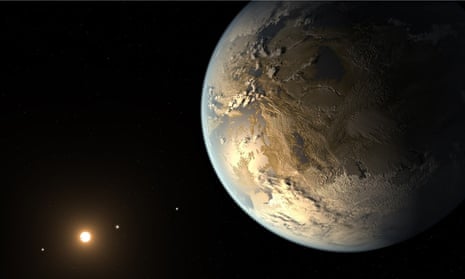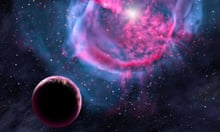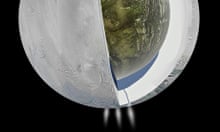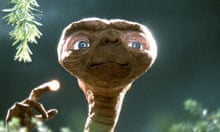Why are we obsessed with the prospect of alien life? The announcement this week of the most Earth-like planet ever discovered – now known as Kepler 438b – is all over the media. Clearly people want to know about it, but why?
Are we afraid? Our news is full of scary stuff, from the potential collapse of the euro to the horrors of war. Indeed most “news” is bad news – it’s called the negativity bias. Scary stories grab our attention. And by some estimates it takes five or six happy events to cancel out the emotional effect of one horrible event.
Yet any fears about alien life forms are surely unjustified. The most likely form of life is a simple, bacteria-like creature swimming in a primeval soup. Intelligent life might have evolved from this, as we humans once did, but this newly detected planet is 500 light years away. So it would take 1,000 years just to send a signal and receive a reply – if any advanced life there was interested enough to bother.
I suppose it’s just possible that the creatures there detected the most Kepler 438b-like planet ever discovered, were capable of speed-of-light travel and, having seen the Viking hordes, sent a vast army of alien warriors to subdue them, setting off 499 years ago – so look out for the end of civilisation any day now. But given the total failure of Seti (the search for extraterrestrial intelligence), this really is far-fetched.
But then we’re not a very logical species. Brian Cox reported that his Stargazing Live crew were prevented from searching for life on a newly discovered planet because bosses at the BBC feared that discovering aliens on live TV may breach its health and safety regulations.
For the religiously minded, there may be threats. If you believe that humans were made in God’s image and are alone in having souls and morals and the chance to go to heaven or hell, then finding intelligent life elsewhere would threaten your image of humanity and yourself. But clearly this fascination is not restricted to fundamentalists.
When I asked colleagues if they feared extraterrestrial life, one turned the question back on me – are you scared? And I realised that yes, I am. The possibility I find most depressing is that life is ubiquitous – flourishing again and again throughout the universe – but intelligent life is so dangerous that it cannot last. So we, with our splendid new technology and our destruction of our own planet, may be the next to go.
My reasoning comes straight from evolutionary theory. For 4bn years life on earth was confined to gene-machines – creatures propagating and evolving on the basis of the first replicator: genes. Then, when our ancestors began imitating only a few million years ago at most, they let loose a second replicator: memes. These words, stories, skills and technologies competed for space in our brains and culture and changed us into far more dangerous creatures, capable of affecting the whole planet with our agriculture, building projects and population explosion.
Even more recently we and our memes have constructed new kinds of evolving machinery – the computers, servers, phones, tablets and gadgets that are increasingly linked together and taking up ever more of the planet’s resources. We cannot now stop this process and, even though we invented the first of these machines, we are no longer in control.
I hope I’m wrong and that our fascination with alien life is just ordinary human curiosity. Wouldn’t it be wonderful to see creatures completely unlike us, thriving in an alien environment and perhaps finding wonderfully clever solutions to problems we ourselves face on earth? Or could we just be scared of being alone in the universe?




